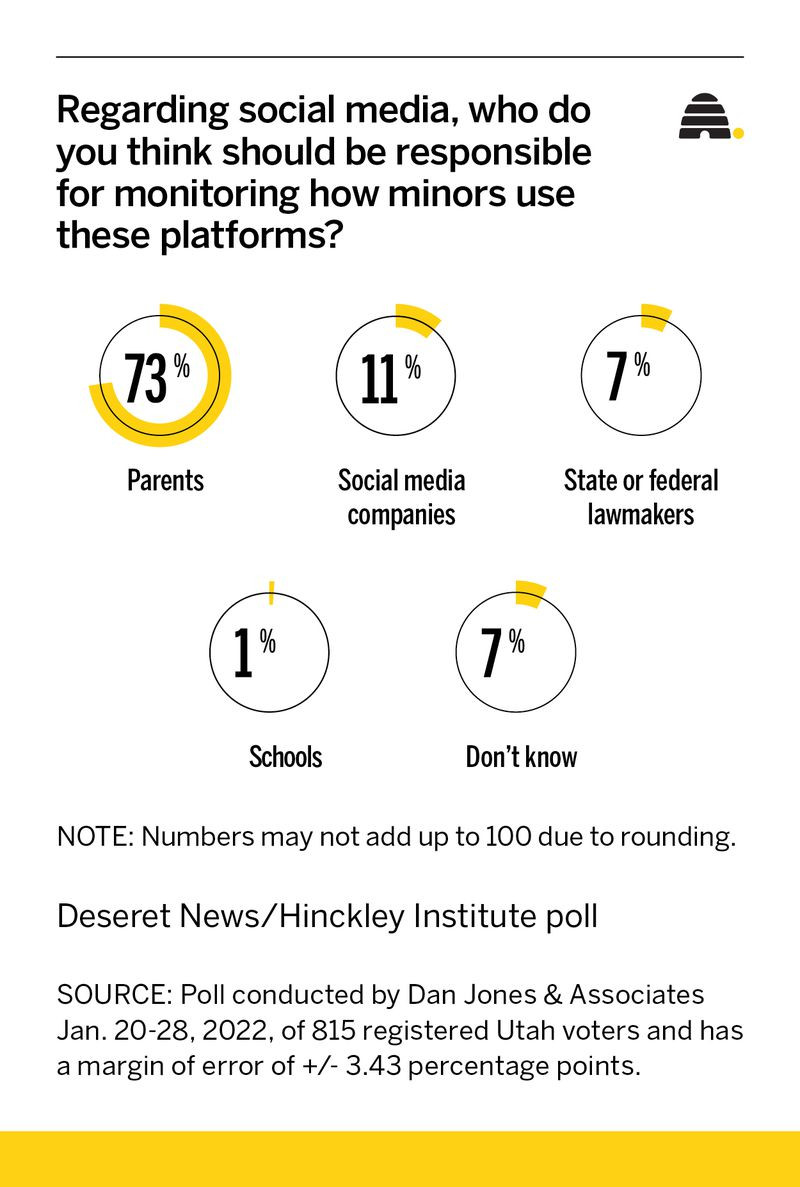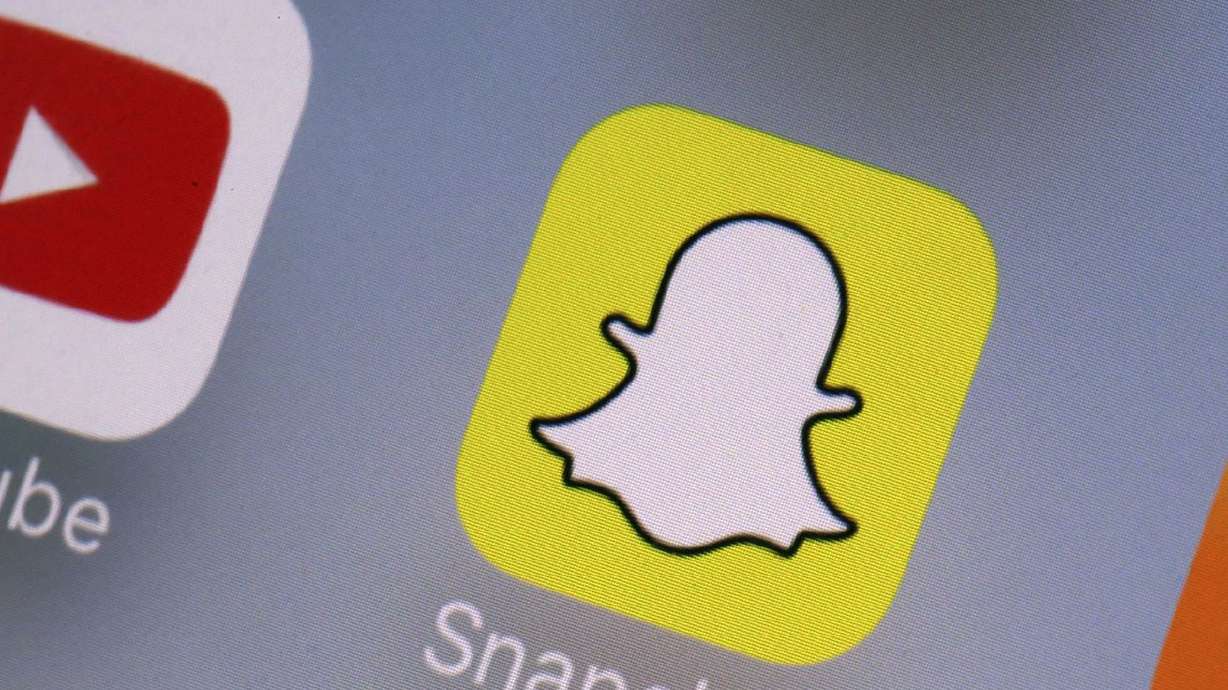Estimated read time: 5-6 minutes
This archived news story is available only for your personal, non-commercial use. Information in the story may be outdated or superseded by additional information. Reading or replaying the story in its archived form does not constitute a republication of the story.
SALT LAKE CITY — When a sexually explicit video was being shared on social media platforms among students at one Granite School District high school in December, administrators went to great lengths to investigate the source.
They immediately notified law enforcement because rumors were swirling that the adult male in the video was a teacher at the school.
It turned out to be a hoax — a video lifted from the internet — but the disruption was costly, both for students who were traumatized by what they had viewed and staff time required to address the matter.
Granite School District spokesman Ben Horsley said one parent, whose 16-year-old daughter saw the video on social media, sobbed into the phone as she told him, "My daughter got this on Snapchat and she can never unsee that. What are you doing about that?"
As a parent of five children himself, Horsley said the conversation was heart-wrenching.
But he is also cognizant that while schools spend an inordinate amount of time addressing cyberbullying, anonymous Instagram accounts used to spread vicious gossip or inappropriate images that are shared among students on various platforms, schools don't have the bandwidth to monitor tens of thousands of students' social media usage.
He posed this question to the mom, "Have you considered restricting your child's access to Snapchat? Frankly, that is the only way we could stop her from getting that video," he said.
The results of a new Deseret News/Hinckley Institute of Politics poll appear to concur with that sentiment.

Just 1% of 815 Utahns who responded to the poll said schools should be responsible for monitoring how minors use social media platforms.
Meanwhile, 73% of those polled said parents are responsible, followed by social media companies at 11% and state or federal lawmakers at 7%. Another 7% said they did not know.
The poll of Utah registered voters was conducted Jan. 20-28 by Dan Jones & Associates and has a margin of error of plus or minus 3.43 percentage points. Respondents were asked to select among the five options.
While the poll places responsibility squarely on parents, many are not familiar with the social media platforms their children use, let alone understand how they work.
Avery Holton, associate professor of communication at the University of Utah, said parents can educate themselves about different platforms "either for and alongside their children in these spaces, or at least on their own. I always encourage folks to, if you're not on the platforms, be on them, even if you're just creating it to look around and see what's happening. That's one way of understanding what it's all about."
It can feel daunting and strange at first but it will help parents better understand where their children are, digitally speaking.
"Would you drop your kiddo off at a mall that you've never seen or at a beach you've never been to? I mean, it's the same sort of thing," he said.
It helps, too, to understand that social media isn't all about dangerous and destructive TikTok challenges or spreading malicious gossip about classmates.
It's how young people connect and interact, Holton said.
Parents need to understand that their children "were born into the technology and ... for almost two years, in many cases, they were locked down.
"They weren't socializing in school. They didn't have other means of socialization, other than being at home with mom and dad and brother and sister, or picking up a device and engaging there, whether it's through video games or TikTok or Instagram, or Twitch or other channels. Those were their capabilities. And in a lot of ways that's good. There's socialization there, there's learning. There's actually a safety net from more negative things like in-person bullying and things, not to say that bullying doesn't still happen," Holton said.
Horsley agrees that there are some positive aspects to social media but schools can bear the brunt of the negative consequences of a student's impetuous decision to share inappropriate materials, cruel gossip or threats.
These incidents largely involve junior high age students and in an average school, "this is probably half your administrative team's time," Horsley said.
The school's primary role is to educate students in a safe environment. "We don't hire assistant principals to just discipline students," Horsley said. Administrators have other important duties such as working with teachers to help them improve their practice.
"Every moment they're not able to do that, it's impacting student outcomes," he said.
Carrie Rogers-Whitehead, founder and CEO of Digital Respons-Ability, a Utah research-based provider of digital citizenship education, recommends a "three Ms" approach to social media use: model, manage and monitor.
Parents should model a healthy digital lifestyle for their children by using technology appropriately. "Parents are their children's first teachers," she said.
Parents should manage personal information and accounts for young children. As they grow, they should be allowed to manage those accounts and parents should teach them how to use them.
Last, once children have started managing their own accounts, parents need to continue to monitor their activity. "Pay special attention to any behaviors that risk their personal information," the company website states.
Digital Respons-Ability receives funding from the Utah Legislature and offers classes to help children and parents be safe and responsible online. Last year, it offered 800 classes across the state.
It's not all about the latest app, but keeping lines of communication open and giving kids age-appropriate space to explore, create and learn. "That's important for kids as they grow," Rogers-Whitehead said.
But parents also need to be aware of "red-flag behaviors," she said.
"Is your kid friendly, being more secretive or hiding things from you? Has their screen time increased? Have they been less likely to talk about things?" Rogers-Whitehead said. "The behavior is going to tell you something, not necessarily the app."










